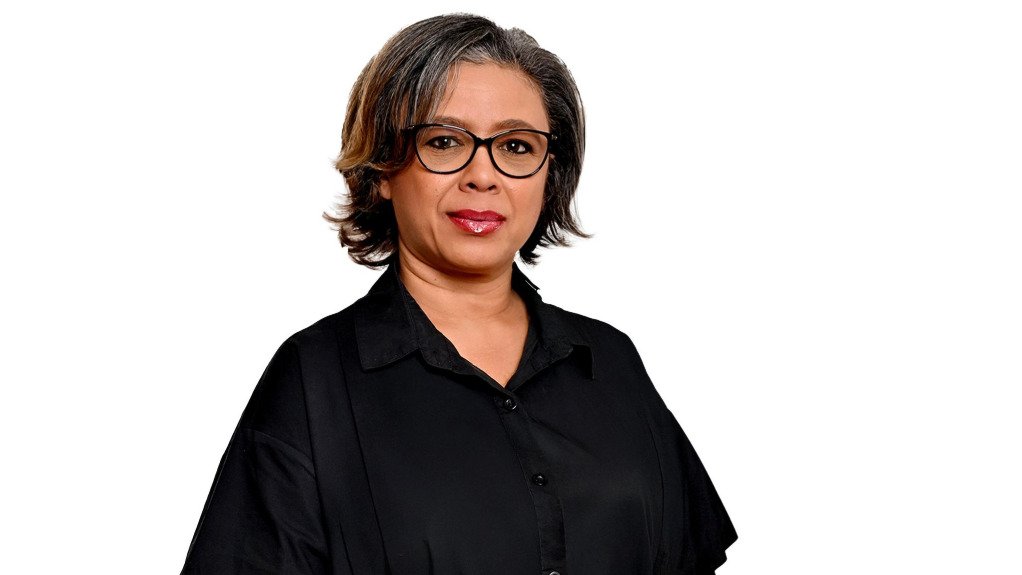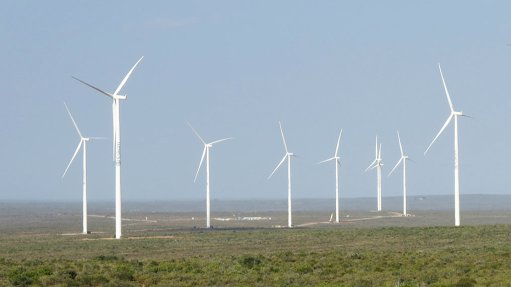First private train operators expected to enter network over coming 12 to 36 months
Transnet CEO Michelle Phillips reports that negotiations are under way to conclude contracts with the first 11 private train operating companies (TOCs) that have qualified to take up slots on the network, but the entities have indicated that it could take between 12 and 36 months thereafter for them to begin operating.
Speaking at the State-owned group results presentation in Johannesburg, Phillips said that access to rolling stock would be a key determinant of the pace at which these TOCs could enter the network and reported that Transnet was, thus, prioritising the establishment of a LeaseCo.
This LeaseCo, which would be set up as a public-private partnership, would make available surplus Transnet rolling stock to the TOCs.
Phillips said potential partners for the LeaseCo were in the process of being shortlisted following a prequalification process and that a request for proposals would be issued soon to select a partner with the capital, skills, refurbishment and leasing capacity needed to launch the venture.
Transnet would not demand a majority equity stake in the entity, which Phillips described as a potential “game changer” in accelerating the entry of TOCs onto the network in a bid to lift rail volumes to the stated target of 250-million tons yearly by 2030.
The first 11 TOCs expect to move 20-million tons yearly once they are operational, while the Transnet Freight Rail Operating Company is targeting yearly volumes of 180-million tons.
In the 2024/25 financial year, Transnet reported rail volumes of 160.1-million tons, up from the 151.7-million tons reported in the previous financial year, but still well below the 226.3-million record of 2017/18.
The TOCs would enter the network at their own risk, and would thus be affected not only by significant maintenance backlogs, but also by ongoing theft and vandalism, which interrupted services and caused derailments.
Transnet chairperson Andile Sangqu stressed that the group, which had hitherto monopolised the rail system, was committed to opening up the network.
The Transnet Infrastructure Manager, or TRIM, had been a key step in the vertical separation of the rail business, while a Network Statement was now in place, and was being updated yearly, to outline what slots were available and the tariffs for using the network.
“We have introduced and welcomed competition into the rail network,” he said, arguing that this would unlock growth in other sectors, including mining.
Public private partnerships also feature more generally in Transnet’s ‘Recovery for Growth’ strategy, which is guiding the current phase of an ongoing turnaround plan at a company that is trading with the support of R146-billion in government guarantees and which has debt of R144.78-billion.
While protracted litigation continues to delay a propose partnership at the Durban Container Terminal Pier 2, Phillips reported progress on several other private sector participation (PSP) projects, including:
- A PSP to expand the Richards Bay dry bulk terminal from 18.5-million tons to 26-million tons, the tender for which will be issued this year;
- The Ngqura manganese export corridor PSP, which will also allow for the decommissioning of the existing terminal at Port Elizabeth, and which will go out to tender between January and March next year; and
- The container corridor PSP, the tender for which is planned after April next year.
Transnet is also assessing responses to a request for information for PSP infrastructure projects across various other rail corridors and at its ports making further requests for proposals likely over the coming two years.
Internally Transnet is expecting to sustain yearly capital expenditure at a R25-billion level with most of the investment to be directed towards the maintenance and modernisation of existing infrastructure and equipment across the rail and port systems.
During the 2024/25 financial year, capital expenditure rose from R16.9-billion to R24-billion.
The group also recorded a financial recovery, narrowing its loss to R1.9-billion from R7.3-billion in the prior year, a 74% improvement.
Article Enquiry
Email Article
Save Article
Feedback
To advertise email advertising@creamermedia.co.za or click here
Press Office
Announcements
What's On
Subscribe to improve your user experience...
Option 1 (equivalent of R125 a month):
Receive a weekly copy of Creamer Media's Engineering News & Mining Weekly magazine
(print copy for those in South Africa and e-magazine for those outside of South Africa)
Receive daily email newsletters
Access to full search results
Access archive of magazine back copies
Access to Projects in Progress
Access to ONE Research Report of your choice in PDF format
Option 2 (equivalent of R375 a month):
All benefits from Option 1
PLUS
Access to Creamer Media's Research Channel Africa for ALL Research Reports, in PDF format, on various industrial and mining sectors
including Electricity; Water; Energy Transition; Hydrogen; Roads, Rail and Ports; Coal; Gold; Platinum; Battery Metals; etc.
Already a subscriber?
Forgotten your password?
Receive weekly copy of Creamer Media's Engineering News & Mining Weekly magazine (print copy for those in South Africa and e-magazine for those outside of South Africa)
➕
Recieve daily email newsletters
➕
Access to full search results
➕
Access archive of magazine back copies
➕
Access to Projects in Progress
➕
Access to ONE Research Report of your choice in PDF format
RESEARCH CHANNEL AFRICA
R4500 (equivalent of R375 a month)
SUBSCRIBEAll benefits from Option 1
➕
Access to Creamer Media's Research Channel Africa for ALL Research Reports on various industrial and mining sectors, in PDF format, including on:
Electricity
➕
Water
➕
Energy Transition
➕
Hydrogen
➕
Roads, Rail and Ports
➕
Coal
➕
Gold
➕
Platinum
➕
Battery Metals
➕
etc.
Receive all benefits from Option 1 or Option 2 delivered to numerous people at your company
➕
Multiple User names and Passwords for simultaneous log-ins
➕
Intranet integration access to all in your organisation




















